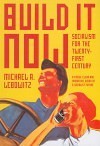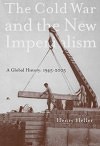Americas
On April 19, 1999, two F-18 jets mistook the navy’s red-and-white checked observation post on the island of Vieques, Puerto Rico for a target, and dropped 500 pound bombs on it. Vieques resident David Sanes was working at the observation post as a security guard for the navy. He was killed almost instantly. Three other men from Vieques were seriously injured. Sanes’ death sparked a wave of protest—civil disobedience, marches, petitions, resolutions, and lobbying—which resulted in the promise, made by then U.S. President Clinton and reiterated by his successor, that the navy will leave Vieques by May 2003. The navy says these plans will not be affected by war on Iraq. As veterans of earlier navy promises, the Viequenses, and the people of Puerto Rico, are wary | more…
In a three-week period in the summer of 2002, national and international attention was drawn to a fast and furious clash between forces unleashed by the globalized world economy and peasants in a small village within the larger Mexico City urban area. The Mexican federal government attempted to expropriate the peasants’ land to make way for a sorely needed new international airport. The existing airport, with only two runways, was clearly inadequate. A new airport with six runways would bring the country’s air transport infrastructure up to modern standards, a necessity for any country seeking to be competitive in the global economy. The peasants balked at selling their land and in the end they prevailed, seemingly against all odds | more…
Many friends have written to me since the victory of “Lula” da Silva, elected as Brazil’s president. I thank you all. We need your good wishes, and especially we need your continuing vital opposition to the U.S. government’s aggression | more…
“The American health care system is confronting a crisis.” This was the not very surprising conclusion of a study by a National Academy of Science panel on the U.S. health care system, carried out at the request of the administration and released in November 2002 www.nap.edu/books/0309087074/html. The report, entitled Fostering Rapid Advances in Health Care, describes conditions that are little short of horrendous. Health care costs are increasing at an annual rate in excess of 12 percent. The insured are receiving far fewer benefits while paying much more in out-of-pocket expenses. States in fiscal trouble are cutting benefits for Medicaid and other health programs. The number of uninsured has climbed to 41.2 million or 14.5 percent of the U.S. population. This means that one in seven individuals in the United States lacks any health care coverage whatsoever, and many more have inadequate coverage. A quarter of U.S. children aged to nineteen to thirty-five months are deficient in immunizations. Tens of thousands of individuals die every year from medical errors and many more than that from injuries caused by the health system | more…
Among the major countries of the world, the United States has the highest per capita income, and it is often assumed therefore that the ordinary American is materially better off than his or her counterpart anywhere else in the world. In fact, this proposition is practically taken for granted within U.S. national culture, since it is constantly being drummed into our ears by the media and educational institutions. Yet, as a logical proposition it is simply false. This was recently pointed out by Paul Krugman, a leading mainstream economist and columnist for the New York Times, in an article (“For Richer,” New York Times Magazine, October 20, 2002) dedicated to explaining exactly why this national myth is mistaken. “Life expectancy in the U.S.,” Krugman observes, “is well below that in Canada, Japan and every major nation in Western Europe. On the average, we can expect lives a bit shorter than those of Greeks, a bit longer than those of Portuguese. Male life expectancy is lower in the U.S. than it is in Costa Rica” | more…
On September 10, of this year, an interview entitled, “Nelson Mandela: The U.S.A. is a Threat to World Peace,” appeared as a Newsweek web exclusive, http://www.msnbc.com/news/806174.asp. In this interview, Mandela reviewed some of the history of U.S. interventions in the Middle East—including U.S. support of the Shah of Iran, which led to the Islamic revolution in 1979, and U.S. arming and financing of the mujahedin in Afghanistan, which led to the rise of the Taliban. He went on to say, “If you look at those matters, you will come to the conclusion that the attitude of the United States of America is a threat to world peace. Because what [America] is saying is that if you are afraid of a veto in the Security Council, you can go outside and take action and violate the sovereignty of other countries. That is the message they are sending the world. That must be condemned in the strongest terms.” Later, on September 16, when Washington condemned as mere duplicity Iraq’s offer to allow unconditional inspection of its weapons facilities by U.N. inspectors, and again threatened war, Mandela asked: “What right has Bush to say that Iraq’s offer is not genuine? We must condemn that very strongly. No country, however strong, is entitled to comment adversely in the way the U.S. has done. They think they’re the only power in the world. They’re not and they’re following a dangerous policy. One country wants to bully the world” (Guardian, September 19, 2002) | more…

Since the end of the Cold War, the idea of human rights has been made into a justification for intervention by the world’s leading economic and military powers—above all, the United States—in countries that are vulnerable to their attacks. The criteria for such intervention have become more arbitrary and self-serving, and their form more destructive, from Yugoslavia to Afghanistan to Iraq. Until the U.S. invasion of Iraq, the large parts of the left was often complicit in this ideology of intervention-discovering new “Hitlers” as the need arose, and denouncing antiwar arguments as appeasement on the model of Munich in 1938. | more…
In late August and early September a number of MR and Socialist Register authors (including Patrick Bond, John Bellamy Foster, Gerard Greenfield, Naomi Klein, and John Saul) participated in forums in Johannesburg related to the World Summit on Sustainable Development. On August 24, they joined in a march led by antiprivatization activists from the black townships (in particular by Trevor Ngwane and Virginia Setshedi—whose role in the struggle in South Africa is discussed in Ashwin Desai’s new MR Press book, We Are the Poors). The march was organized to protest the arrest and jailing of political activists. The marchers lit candles and proceeded peacefully but were met within minutes by the South African police who exploded percussion grenades, injuring three of the protestors. The harsh and unprovoked actions of the police on this occasion pointed to the increasingly antipopular character of the South African state, which is imposing neoliberal economic policy on the society. It also underscored the repressive measures now commonly utilized at world summits in general. We will address the Johannesburg summit and the economic and environmental problems of southern Africa in an upcoming issue of MR | more…
The growth and eventual bursting of financial bubbles is an inherent feature of capitalist accumulation, as can be seen in the long history of such crises from the South Sea Bubble of the early eighteenth century to the financial blowouts of the present day. In the first half of the summer a dramatic bubble-bursting decline in the U.S. and European stock exchanges wiped out the stock market gains of the previous five years—a period characterized by manic speculation | more…

Build It Now puts forward a clear and innovative vision of a socialist future, and at the same time shows how concrete steps can be taken to make that vision a reality. It shows how the understanding of capitalism can itself become a political act’a defense of the real needs of human beings against the ongoing advance of capitalist profit. | more…
Fifty-four years ago when MR was being planned, one of the questions that the editors, Leo Huberman and Paul Sweezy, had to decide was whether to have a section at the back of the magazine on literature and the arts, what in publisher’s parlance is called “the back of the book.” The MR editors decided not to do so, mainly for practical reasons. They did not feel that they had the necessary knowledge and training to do a good job editorially with such cultural material, and they felt sure that in the circumstances that the U.S. left then found itself they could not count on the support of enough serious socialist critics to sustain an arts section meeting the same standards as MR as a whole. In 1963, the first of these conditions changed temporarily, when Frances Kelly, who had been Business Manager of the New Left Review in London and whose special field of competence was the arts, came to work with the MR editors as Assistant and then Associate Editor. Under Frances Kelly’s editorship, MR published a cultural supplement called Review 1 as an experiment in 1965 | more…

The Cold War by Henry Heller is an account of global history since 1945, which ties together the narrative of the Cold War to that of neoliberalism and the new imperialism in ways that illuminate and clarify the dilemmas of the present moment. | more…


